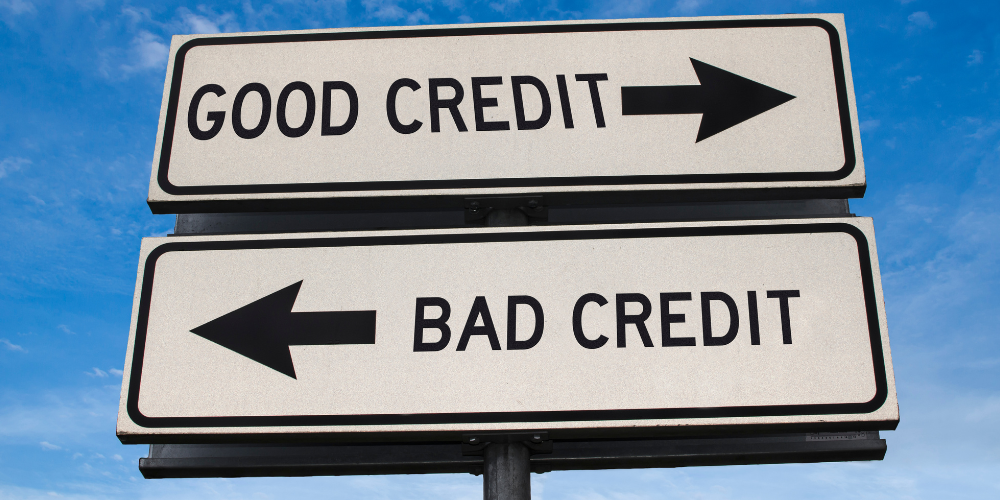Your mortgage rate plays a huge role in determining how much you’ll ultimately pay. Even a fraction of a percentage point can mean tens of thousands of dollars in interest over the life of a loan. But what determines the mortgage rate you’ll be offered? One of the most significant factors is your credit score.
Lenders use your credit score as a measure of risk—essentially, how likely you are to repay the loan on time. The higher your score, the lower the risk in the eyes of the lender, which often translates to a lower interest rate. If your credit score is on the lower side, you may still qualify for a loan, but you’ll likely pay more in interest or face stricter loan terms.
Understanding the relationship between your credit score and mortgage rates can help you make informed financial decisions before purchasing a home. Let’s break down how credit scores impact mortgage rates and what you can do to secure the best possible rate.
What is a Credit Score and Why Does It Matter?
A credit score is a three-digit number that represents your creditworthiness based on your financial history. It’s calculated using several factors, including:
- Payment History (35%) – Have you made your past payments on time? Late payments can significantly lower your score.
- Credit Utilization (30%) – How much of your available credit are you using? High credit card balances relative to your limits can hurt your score.
- Length of Credit History (15%) – The longer you’ve had credit accounts open, the better. Lenders prefer borrowers with a well-established credit history.
- New Credit Inquiries (10%) – Applying for multiple loans or credit cards in a short period can temporarily lower your score.
- Credit Mix (10%) – Having a mix of different credit types, such as credit cards, auto loans, and mortgages, can positively impact your score.
The most widely used credit scoring model is the FICO Score, which ranges from 300 to 850:
- Excellent (800-850) – Best mortgage rates and terms.
- Very Good (740-799) – Competitive rates, but not the absolute lowest.
- Good (670-739) – Qualifies for most mortgages, but at slightly higher rates.
- Fair (580-669) – Higher interest rates, possible additional requirements.
- Poor (300-579) – Difficult to qualify for a conventional mortgage; may need FHA or subprime loans.
How Your Credit Score Affects Mortgage Rates
Your credit score directly influences the interest rate you’ll be offered. Here’s an example of how mortgage rates can vary based on credit score:
| Credit Score | Estimated 30-Year Fixed Mortgage Rate | Monthly Payment on a $300,000 Loan | Total Interest Paid Over 30 Years |
|---|---|---|---|
| 760-850 | 6.25% | $1,847 | $364,920 |
| 700-759 | 6.50% | $1,896 | $382,560 |
| 680-699 | 6.75% | $1,946 | $400,560 |
| 620-679 | 7.50% | $2,097 | $454,920 |
| Below 620 | 8.50% or higher | $2,301+ | $528,360+ |
As you can see, a borrower with an excellent credit score (760+) could save over $100,000 in interest compared to someone with a score below 620.
Other Loan Terms Affected by Credit Score
Besides the interest rate, your credit score can influence other aspects of your mortgage:
- Loan Approval Odds – Lenders may reject applications from borrowers with very low scores.
- Down Payment Requirements – Some conventional loans may require a larger down payment for borrowers with lower scores.
- Private Mortgage Insurance (PMI) – Borrowers with lower scores are often required to pay PMI, which adds to the monthly cost.
- Loan Type Availability – Higher credit scores provide access to a wider variety of loan options, including those with lower fees and more favorable terms.
Ways to Improve Your Credit Score Before Applying for a Mortgage
If your credit score isn’t where you’d like it to be, don’t worry—there are steps you can take to improve it before applying for a mortgage.
Pay Down Credit Card Balances – Aim to keep your credit utilization below 30% of your total available credit.
Make All Payments On Time – Payment history is the biggest factor in your credit score. Setting up automatic payments can help ensure you never miss a due date.
Avoid New Credit Applications – Hard inquiries can temporarily lower your score, so hold off on applying for new loans or credit cards before a mortgage.
Check Your Credit Report for Errors – Mistakes happen. Request a free copy of your credit report from AnnualCreditReport.com and dispute any inaccuracies.
Keep Old Accounts Open – The length of your credit history matters, so avoid closing old accounts if possible.
Be Patient – Credit improvements take time, but even small changes can make a big difference in the mortgage rate you qualify for.
Title Insurance: Protecting Your Investment
While your credit score affects your mortgage, title insurance protects your investment. Title insurance safeguards you against potential legal issues, such as undiscovered liens or claims on the property, that could arise after your purchase.
There are two main types of title insurance:
- Lender’s Title Insurance – Required by most lenders to protect their financial interest in the property.
- Owner’s Title Insurance – Protects your personal ownership rights against title defects, fraud, or prior claims.
Regardless of your credit score, title insurance ensures that your homeownership remains secure. Partnering with a trusted title company can help prevent unexpected legal challenges down the road.
Next Steps
Your credit score plays a crucial role in determining your mortgage rate, monthly payment, and overall loan costs. The good news? If your score isn’t ideal, there are steps you can take to improve it before applying.
Beyond securing a great mortgage rate, ensuring a clean title is another critical step in the homebuying process. Valley Land Title Co. is here to help you navigate the title process, providing peace of mind that your investment is protected.
Contact Valley Land Title Co. today to learn more about title insurance and how we can help make your homebuying journey smooth and secure.

